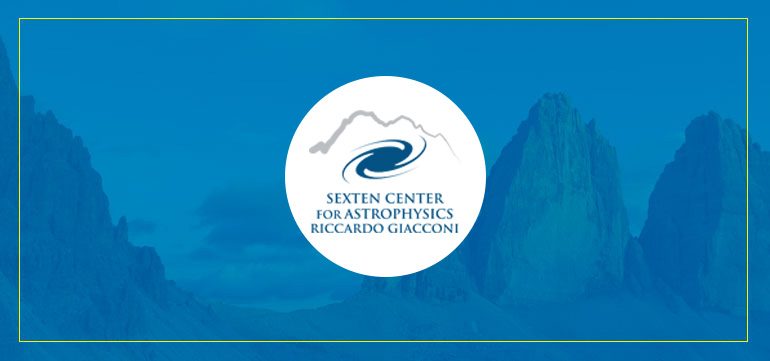
GR effects in cosmological large-scale structure
LOCATION: Sexten Primary School - Via Panorama 6, Sexten
DETAILS
With the results from the Planck satellite and other experiments we have now recently entered the era of precision cosmology, with measurements at percent level. New and upcoming galaxy surveys aim at this level of precision, which then needs to be matched by cosmological simulations. In parallel to this, much work has been done in the last few years, using perturbative methods, to predict subtle relativistic effects in cosmological large-scale structure on very large scales. Given that space missions like the ESA Euclid satellite (http://sci.esa.int/euclid/) as well as ground-based enterprises like the Square-Kilometre Array (https:// www.skatelescope.org) are going to explore larger and larger volumes of the Universe, and that even the simplest standard cosmological model, ΛCDM, is based on General Relativity, it seems now timely to bridge the gap between studies of fully nonlinear structure formation on smaller scales, traditionally carried out with Newtonian methods such as N-body simulations, and relativistic perturbation studies for the largest scales. Recently, few research groups have started pioneering work in this area, developing relativistic simulations for the first time. Some of these are actually using the framework of numerical relativity, which has been successfully employed to precisely predict the gravitational waves signal from the merging of two black holes that has been observed for the first time in 2015, exactly a century after the appearance of Einstein theory.
This workshop aims at gathering some of the most active researchers in this area of research, promoting synergies between different communities, i.e. theoretical and observational cosmologists and numerical relativity researchers, fostering discussions and development of new ideas and collaborations. This is particularly timely in view of the present and oncoming generation of cosmological surveys, which will scrutinise the cosmic large-scale structure to an unprecedented degree of accuracy, delivering us data from the whole electromagnetic spectrum. We plan to organise the workshop with scientific talks sessions in the first part of the morning and late afternoons, followed by open discussions. Late morning and afternoon sessions will be devoted to the development of collaborative ideas raised during the meeting.
RELATED FILES
Full program with presentation is available here.
FEE
185 Eur (Student 120 Eur)
WORKSHOP CODE FOR PAYMENT
ORGANIZERS
SOC: Dr. Marco Bruni (University of Portsmouth), Prof. Nicola Bartolo (University of Padova), Dr. Eloisa Bentivegna (University of Catania), Dr. Daniele Bertacca (University of Bonn), Dr. Camille Bonvin (University of Geneva), Dr. Stefano Camera (University of Torino), Dr. Chris Clarkson (Queen Mary University of London), Prof. Ruth Durrer (University of Geneva), Prof. Luigi Guzzo (University of Milano), Prof. Roy Maartens (University of Western Cape), Prof. Sabino Matarrese (University of Padova), Dr. Obinna Umeh (University of Portsmouth), Prof. Matteo Viel (SISSA, Trieste)
Contact email: sestoworkshop@gmail.com
Supported in part by:


